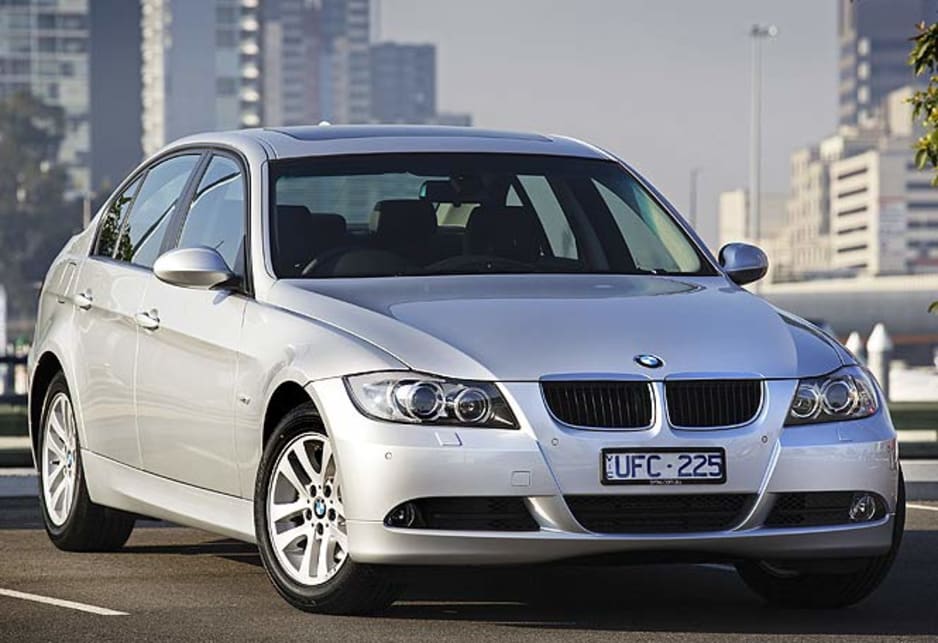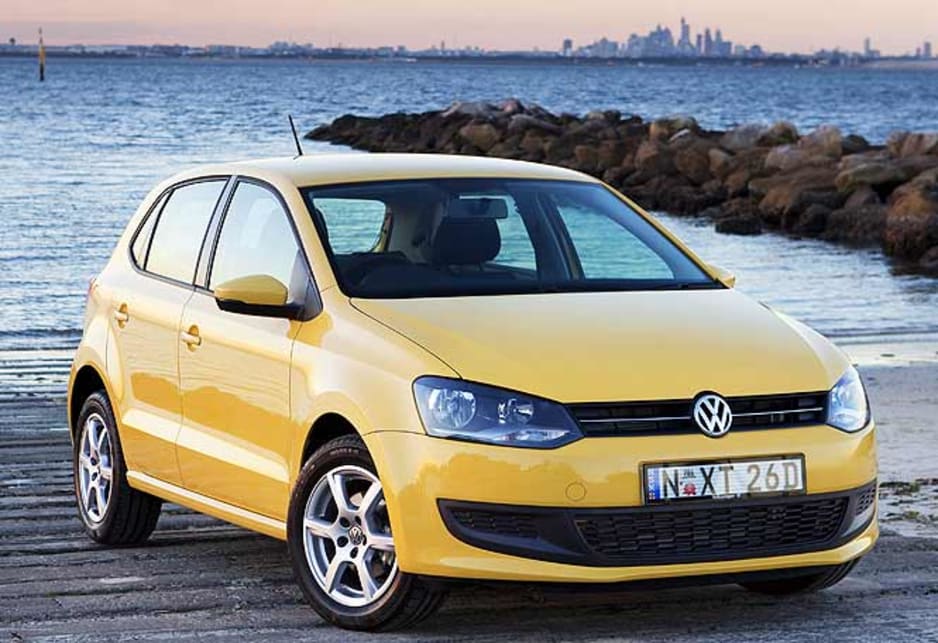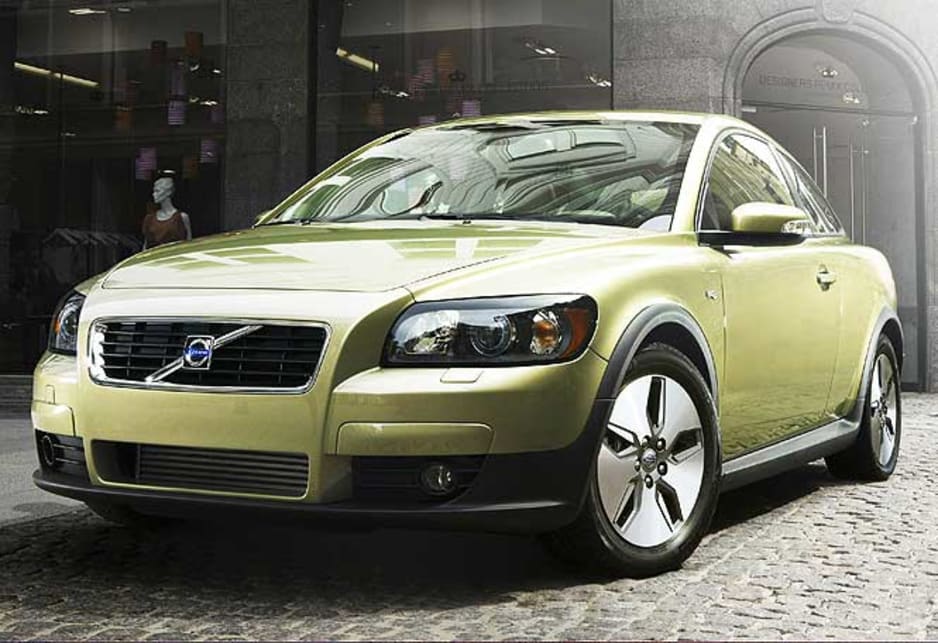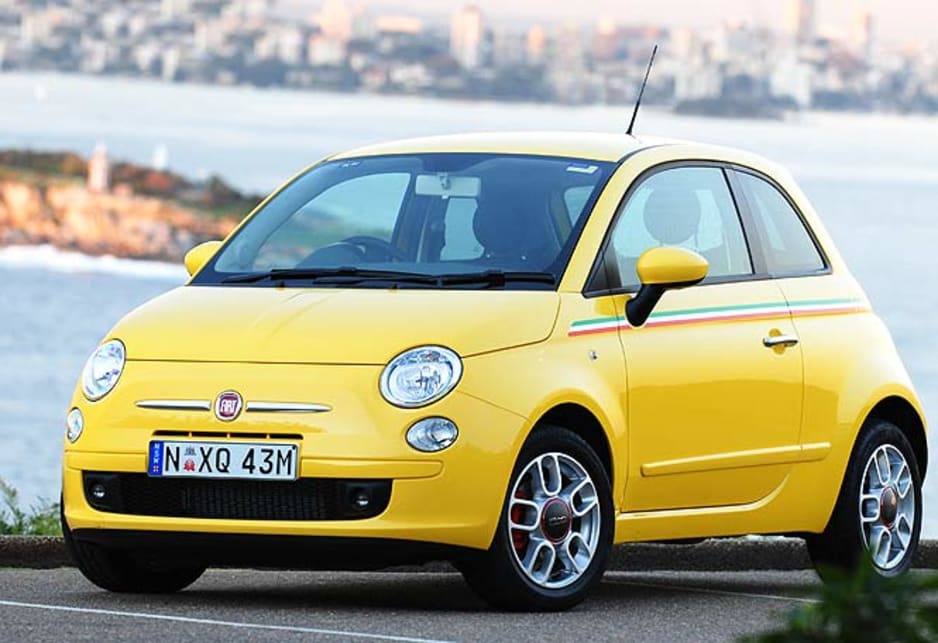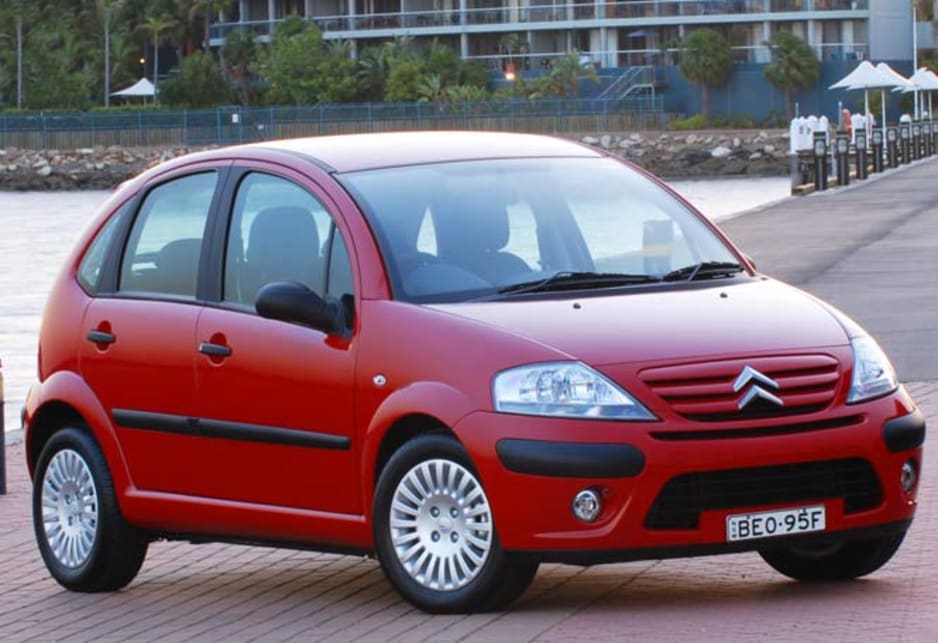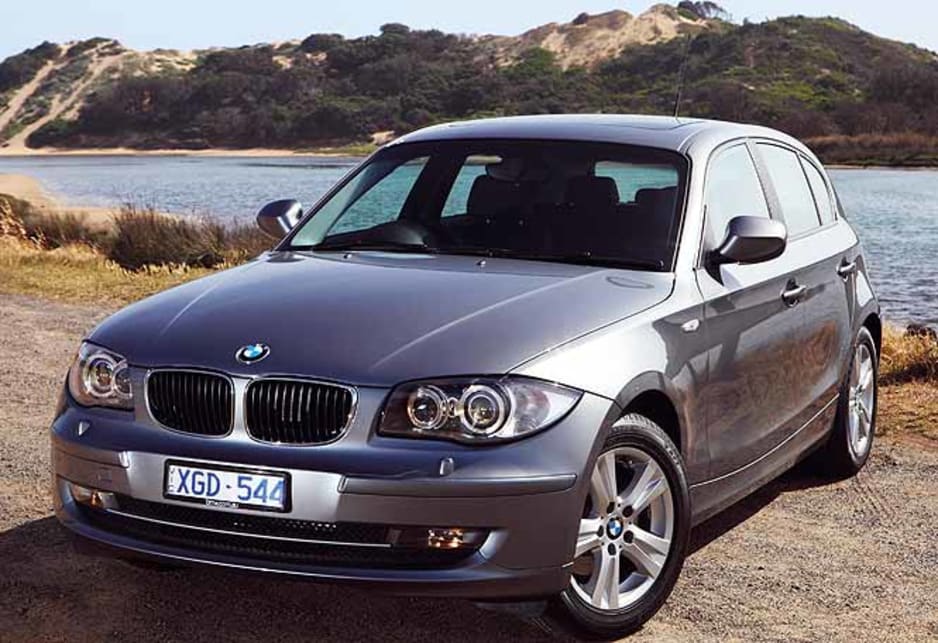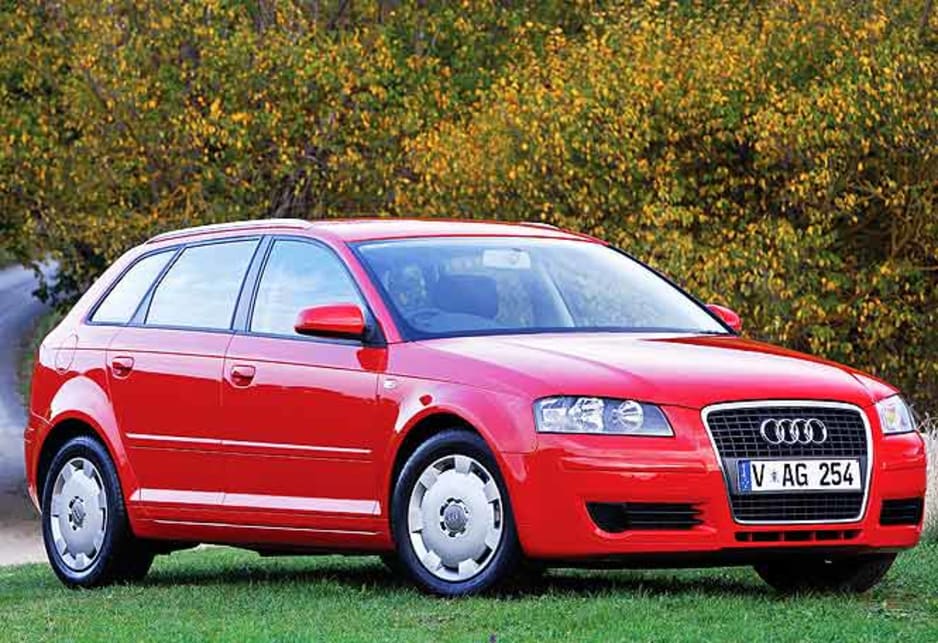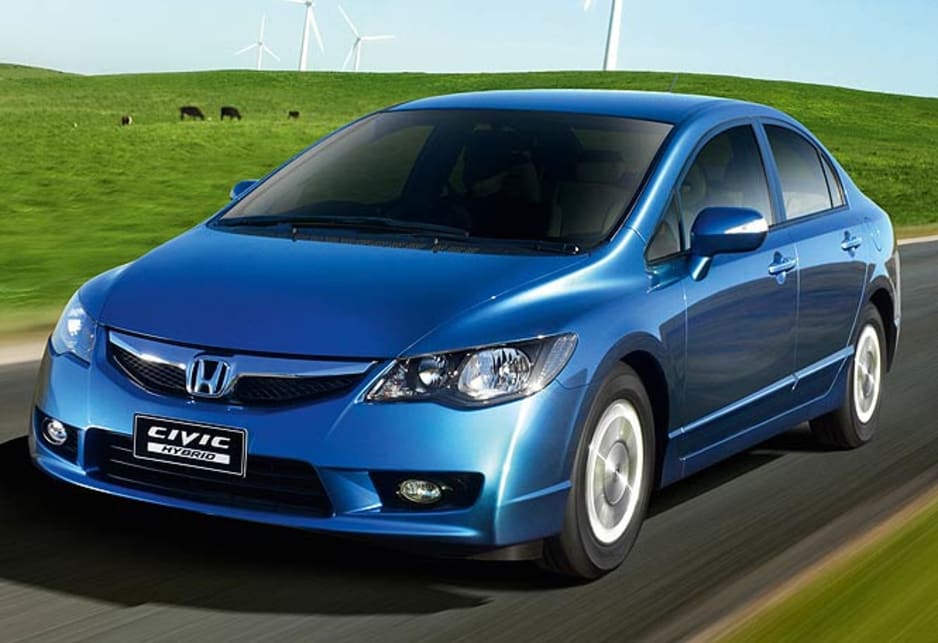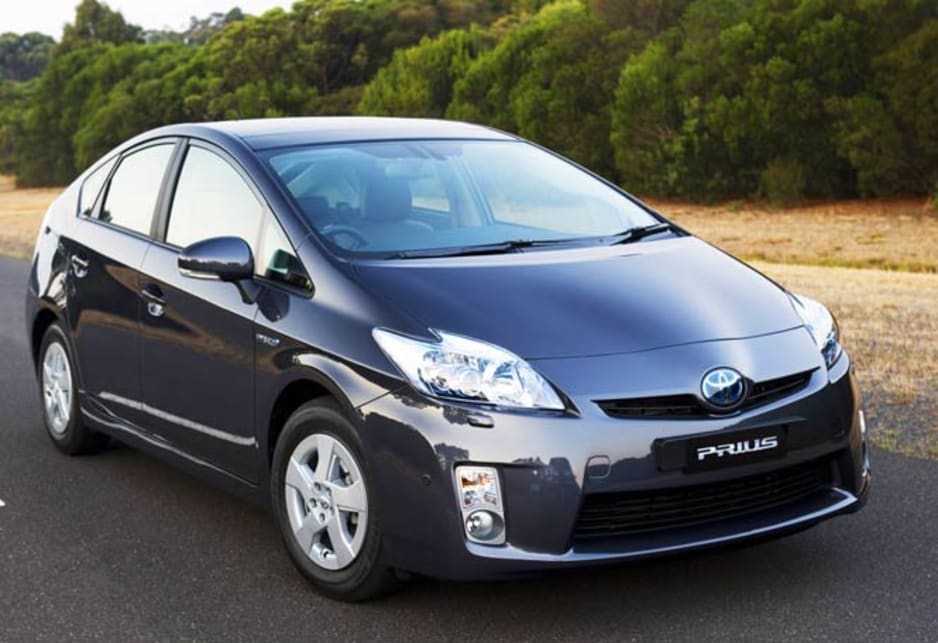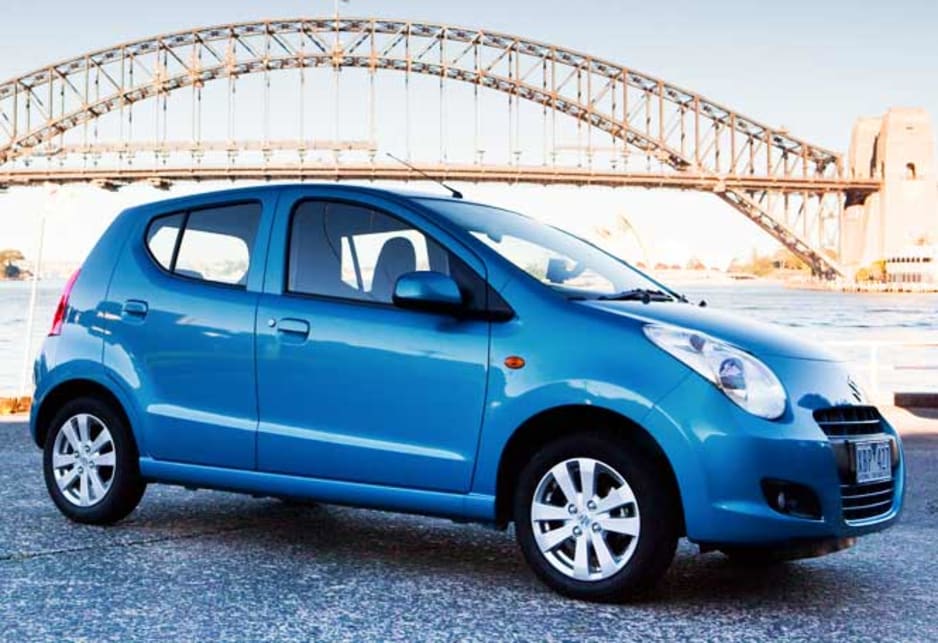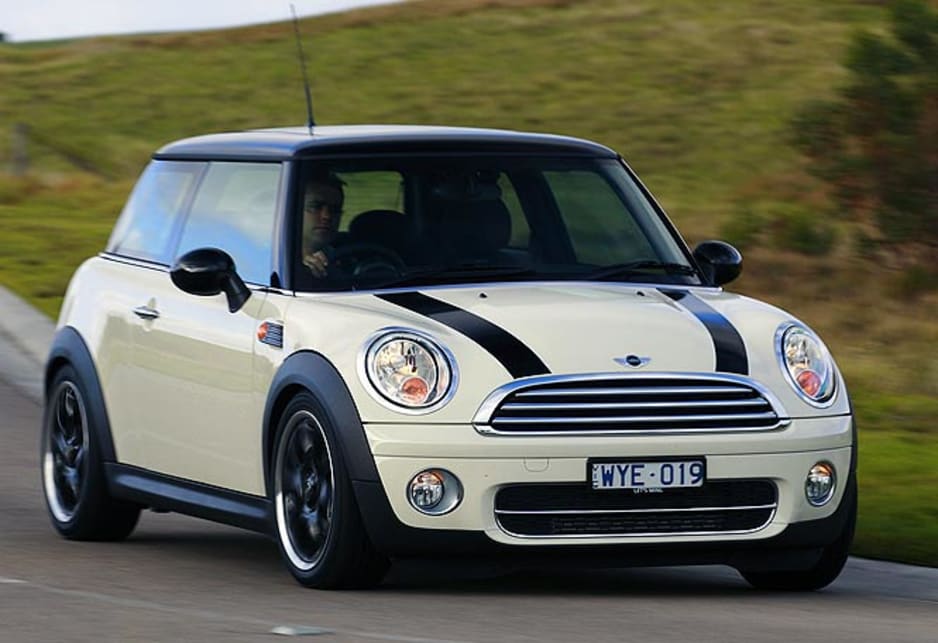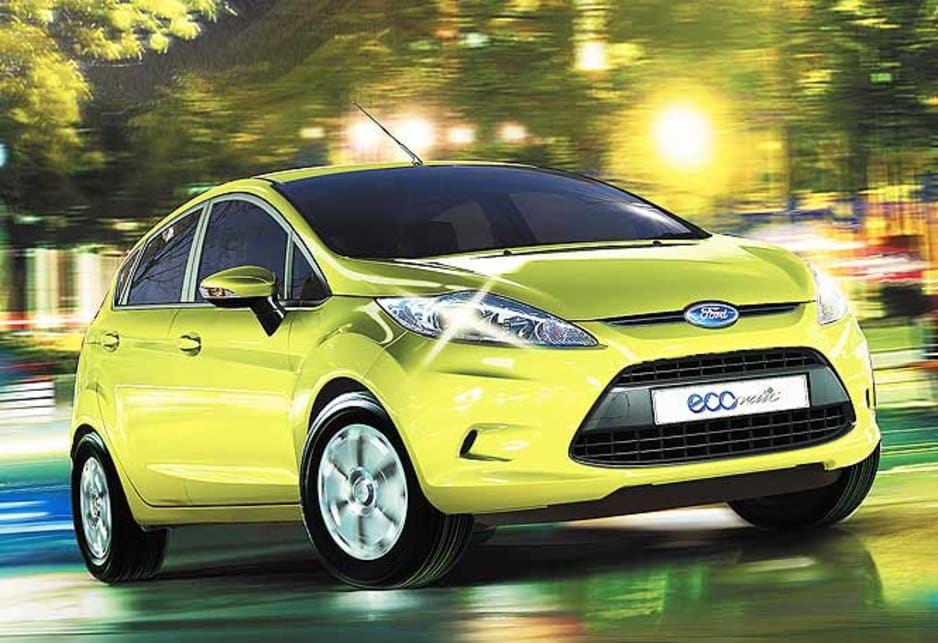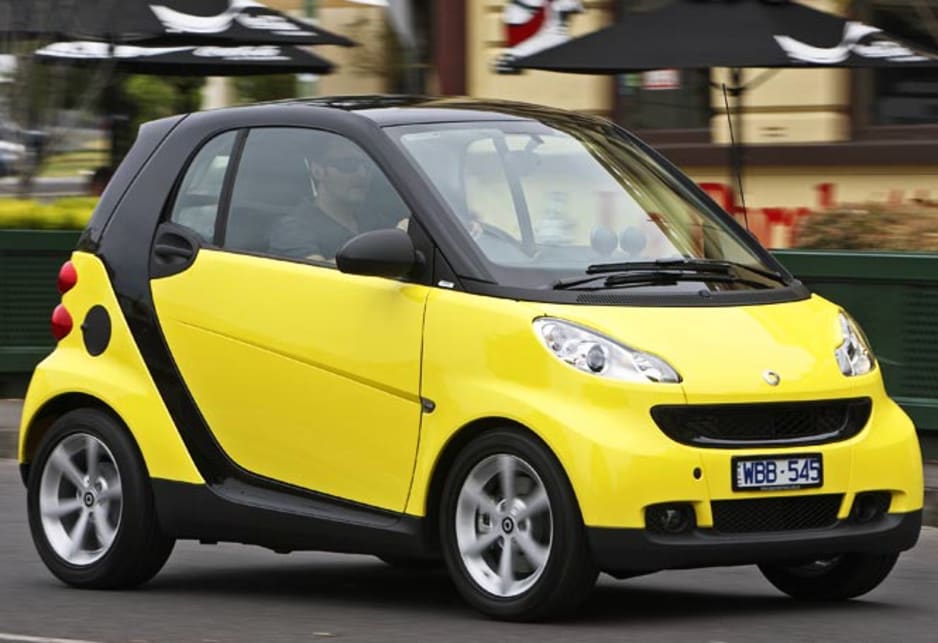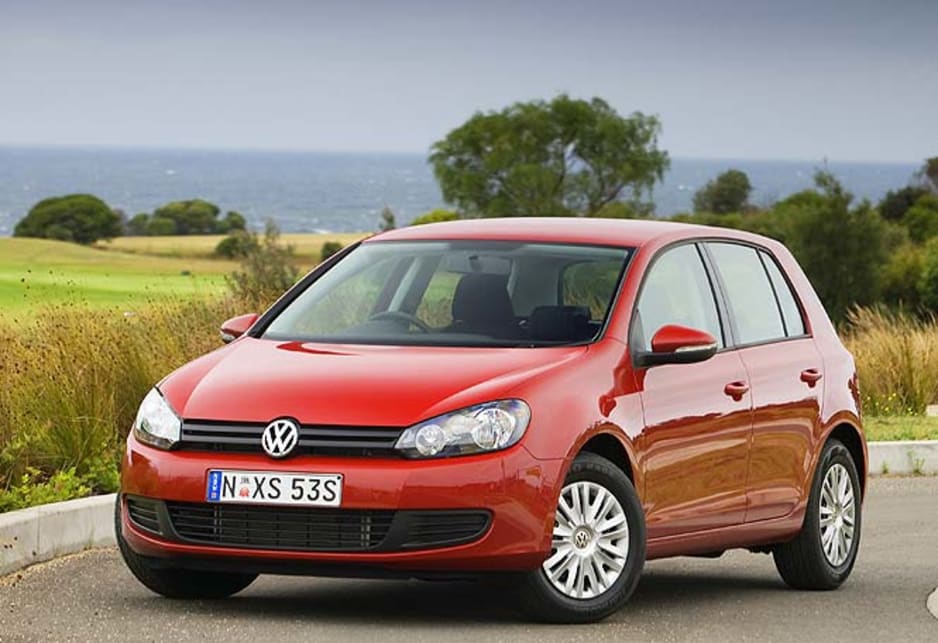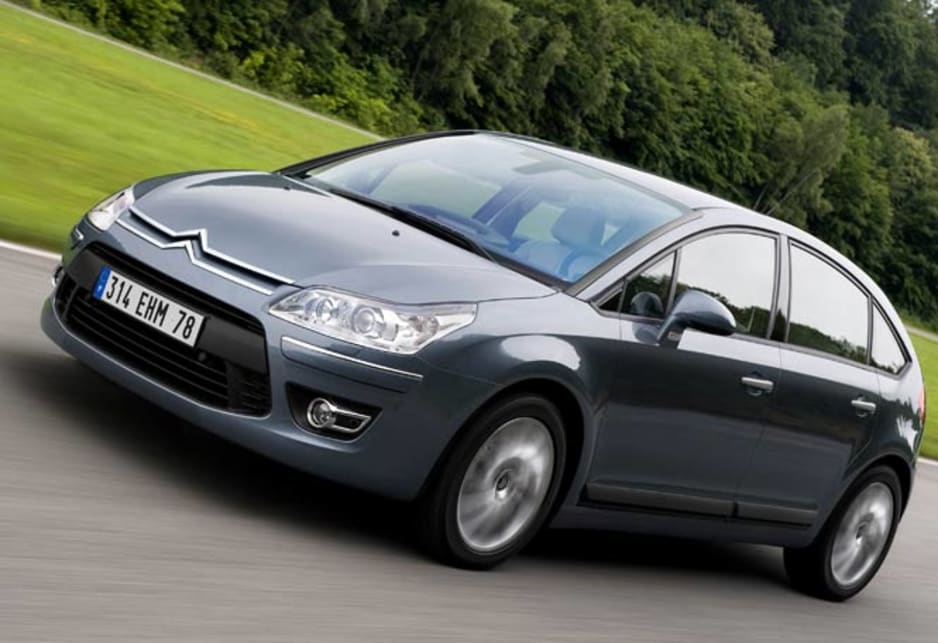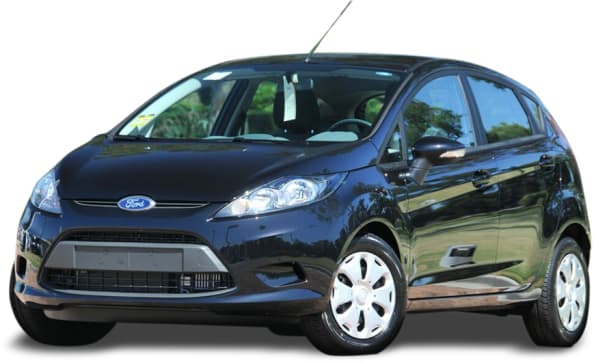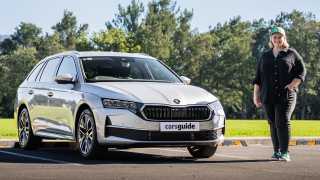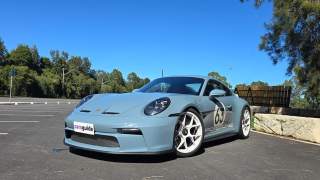
Used fuel efficient cars review: 2009
- Mini Cooper
- Toyota Prius
- Fiat 500
- Ford Fiesta
- Volvo C30
- Ford Fiesta 2009
- Mini Cooper 2009
- Toyota Prius 2009
- Fiat 500 2009
- Volvo C30 2009
- Mini Cooper Reviews
- Toyota Prius Reviews
- Fiat 500 Reviews
- Ford Fiesta Reviews
- Volvo C30 Reviews
- Fiat Reviews
- Ford Reviews
- Mini Reviews
- Toyota Reviews
- Volvo Reviews
- Fiat Hatchback Range
- Ford Hatchback Range
- Mini Hatchback Range
- Toyota Hatchback Range
- Volvo Hatchback Range
- Hatchback
- Fiat
- Ford
- Mini
- Toyota
- Volvo
- Used Car Reviews
Doing 100km of general running about for less than five bucks in fuel makes motoring pretty affordable. As manufacturers bring out more models with increasingly-amazing frugality, motorists are laughing all the way from the pumps.
A generation ago, the 30 miles per gallon mark (9.4 litres/100km in metric speak) was a fairly good figure to achieve, with only the little, low-powered super-sippers doing better than 40 miles per gallon (7 litres/100km).
Now, however, the best of the fuel misers are achieving official results of better than 4 litres/100km (70 miles per gallon).
Just as importantly, they are cars that perform OK in the cut and thrust of everyday commuting and most will readily hold their own on a run to Victor or the highway to the Barossa. There's no need to creep along getting in others' way, when you've got 80kW of power and 250Nm of torque under the right foot as is the case with two of the top five fuel economy cars on sale in Australia.
Why the focus on cutting fuel?
Three main considerations drive auto engineers to develop these fuel-sipper engines:
1) The cost of oil long-term will rise, making refilling more expensive.
2) The world will run low on oil (we are using it at a greater rate than we are discovering it), and so it has to be stretched further.
3) The environment and people’s concern for it means it's important when the less fuel burnt per kilometre creates less exhaust emission; and cars might be taxed on their emission rating here one day.
Petrol vs diesel
Fuel cost of running a petrol versus a diesel car depends on the relative prices of the fuel. But in recent times there has not been much difference between them.
The best advances have been made with diesel-fuelled engines. The fuel is squirted into the engine in carefully measured tiny amounts under enormous pressure thanks to modern 'common rail' injection systems. The injection process is helped by cleverly-designed turbochargers (using the engine's exhaust gasses to spin a turbine that pushes more air, and therefore oxygen, into the cylinders).
Combined with optimised shape of the combustion chamber, there is great efficiency of power achieved from every drop of fuel, a help to fuel economy and emissions.
What’s the advantage of diesel?
Similar work is being done on petrol-fuelled engines but the standout characteristic of diesel engines' torque, or pulling power, at low engine revs gives them an advantage of fuel economy. Diesel cars can get into their higher gears sooner and at relatively low speeds. And once settled, the engine ticks over at a low speed and so uses less fuel.
Take the Fiat 500, for example. Its 1.4-litre engine running on petrol is quite economical. Maximum torque of 131Nm comes at 4250rpm and its official fuel economy is 6.3 litres/100km. But its 1.3-litre JTD diesel brother has more torque, 145Nm, at about a third of the engine speed, 1500rpm, and its fuel economy is 4.2 litres/100km. The little petrol engine uses 50 per cent more fuel while giving similar on-road performance.
The top petrol-only car on the fuel economy list from www.greenvehicleguide.gov.au is the tiny Smart Fortwo. It has an engine of just one litre size and three cylinders and is only a two-seater. But its light weight means the modest 55kW power is enough.
What about hybrids?
Hybrid cars - those that have a conventional engine plus and electric motor, exemplified by the Toyota Prius - come into their own in stop-start commuting. Normally, when a driver presses the brake pedal it is the enemy of fuel economy: you've burnt fuel to build speed only to waste it by braking and converting to heat energy that is lost. The hybrid car harnesses that energy, like an electricity generator, and feeds it to the battery pack for an electric motor that assists propelling the car.
But hybrids are not so beneficial in open road driving where they run on their conventional engine only and still carry the weight of the electric motor and batteries with little chance to use brake regeneration. However, the Prius is the third-best in fuel economy of all cars.
Stop-start systems
Some fuel-wise cars have stop-start: when the car is stopped and in neutral, the engine shuts off. It restarts as the driver presses the clutch pedal to move into gear.
Other fuel-saving technology
Engines done, the auto engineers then enhance the efficiency of their fuel misers by making them light in weight (they ditched the spare wheel of the Ford Fiesta ECOnetic to cut weight) and they run on low-rolling resistance, thin, tyres.
Aerodynamics also get attention. Look at the plate-style wheel covers on the Volvo C30 DRIVe. The Fiesta ECOnetic sits lower than other Fiestas and has a deflector skirt under the front wheel while the MINI D has underbody smooth airflow design. Prius boasts a drag co-efficient of .25 (anything below .3 is commendable; this is very good for a four-door).
Only one of our top five can be had with an automatic transmission, the MINI charging $2350 extra for its sophisticated six-speed automatic.
Visit www.greenvehicleguide.gov.au for models' official fuel economy and emissions rating.
TOP 15 FUEL MISERS
| CAR MODEL | FUEL TYPE | ECONOMY | ANNUAL COST* |
| Ford Fiesta Econetic | Diesel | 3.7l/100km | $749 |
| Volvo C30 DRIVe | Diesel | 3.8l/100km | $769 |
| Toyota Prius Hybrid | Electric/petrol | 3.9l/100km | $789 |
| Mini Cooper D | Diesel | 3.9l/100km | $789 |
| Fiat 500 1.3 JTD | Diesel | 4.2l/100km | $850 |
| Smart Fortwo | Petrol | 4.4l/100km | $891 |
| Citroen C3 1.6 | Diesel | 4.4l/100km | $891 |
| BMW 118d | Diesel | 4.5l/100km | $911 |
| Audi A3 1.9 | Diesel | 4.5l/100km | $911 |
| Citroen C4 1.6 | Diesel | 4.5l/100km | $911 |
| Honda Civic Hybrid | Electric/petrol | 4.6l/100km | $931 |
| VW Polo 66TDI | Diesel | 4.6l/100km | $931 |
| Suzuki Alto | Petrol | 4.7l/100km | $951 |
| VW Golf 77 | Diesel | 4.7l/100km | $951 |
| BMW 320d | Diesel | 4.7l/100km | $951 |
* Annual cost for fuel at 15,000km a year and $1.35 a litre. Source: Green Vehicle Guide
THE TOP 5 AT A GLANCE
Ford Fiesta ECOnetic from $24,990
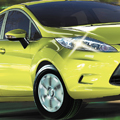 Engine: Diesel, 1.6L, 4-cyl turbocharged, DOHC
Engine: Diesel, 1.6L, 4-cyl turbocharged, DOHC
Power: 66kW @ 4000rpm
Torque: 200Nm @ 1750rpm
Transmission: Five-speed manual; front-wheel-drive
Fuel consumption: 3.7 litres/100km
CO2 emissions: 98g/km
Dimensions: 3950mm long, 1722mm wide
Volvo C30 DRIVe from $36,150
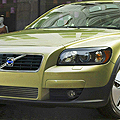 Engine: Diesel, 1.6L, 4-cyl t/charged, DOHC, stop-start
Engine: Diesel, 1.6L, 4-cyl t/charged, DOHC, stop-start
Power: 80kW @ 4000rpm
Torque: 250Nm @ 1750rpm
Transmission: Five-speed manual; front-wheel-drive
Fuel consumption: 3.9 litres/100km
CO2 emissions: 99g/km
Dimensions: 4266mm long, 1782mm wide
Toyota Prius from $39,900
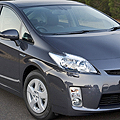 Engine: Petrol, 1.8L, 4-cyl DOHC; AC 650V series-parallel hybrid, stop/start
Engine: Petrol, 1.8L, 4-cyl DOHC; AC 650V series-parallel hybrid, stop/start
Power: 73kW @ 5200rpm + electric motor
Torque: 142nm @ 4000rpm + electric motor
Transmission: CVT; front-wheel-drive
Fuel consumption: 3.9 litres/100km
CO2 emissions: 89g/km
Dimensions: 4460mm long, 1745mm wide
Mini Cooper D from $33,750
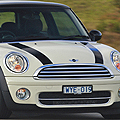 Engine: Diesel, 1.6L, 4-cyl t/charged, DOHC; stop-start
Engine: Diesel, 1.6L, 4-cyl t/charged, DOHC; stop-start
Power: 80kW @ 4000rpm
Torque: 240Nm @ 1750rpm (260Nm on overboost)
Transmission: Six-speed manual (six-speed automatic $2350); front-wheel-drive
Fuel consumption: 3.9 litres/100km
CO2 emissions: 104g/km
Dimensions: 3709mm long, 1683mm wide
Fiat 500 JTD from $25,990
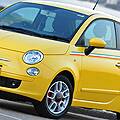 Engine: Diesel, 1.3L, 4-cyl t/charged, DOHC
Engine: Diesel, 1.3L, 4-cyl t/charged, DOHC
Power: 55kW @ 4000rpm
Torque: 145Nm @ 1500rpm
Transmission: Five-speed manual; front-wheel-drive
Fuel consumption: 4.2 litres/100km
C02 emissions: 111g/km
Dimensions: 3546mm long, 1627mm wide
Pricing guides
Range and Specs
| Vehicle | Specs | Price* | |
|---|---|---|---|
| CL | 1.4L, ULP, 4 SP AUTO | $5,500 – 7,810 | 2009 Ford Fiesta 2009 CL Pricing and Specs |
| LX | 1.6L, ULP, 5 SP MAN | $5,060 – 7,370 | 2009 Ford Fiesta 2009 LX Pricing and Specs |
| Zetec | 1.6L, ULP, 5 SP MAN | $5,170 – 7,590 | 2009 Ford Fiesta 2009 Zetec Pricing and Specs |
| Econetic | 1.6L, Diesel, 5 SP MAN | $4,840 – 7,150 | 2009 Ford Fiesta 2009 Econetic Pricing and Specs |
$3,985
Lowest price, based on 45 car listings in the last 6 months


